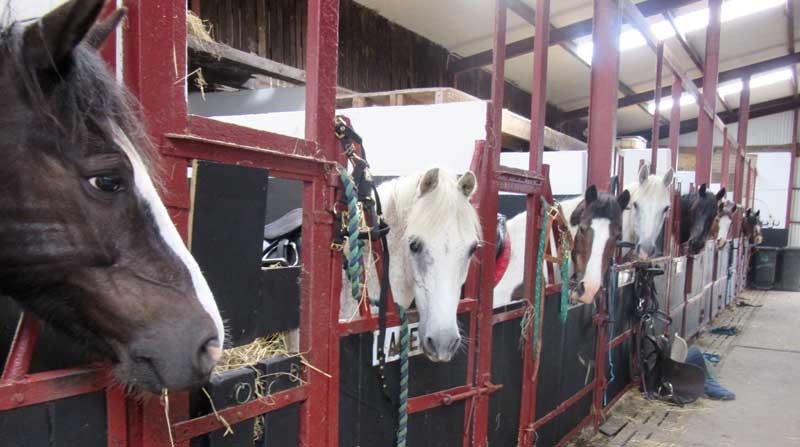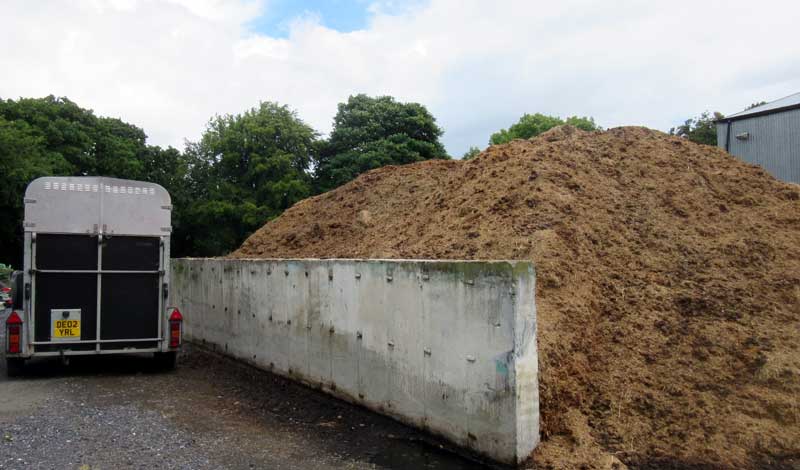Equine Infectious Disease Control

Aoife Hand, a fourth year student of Veterinary Medicine in UCD, undertook some research earlier in 2016 in the area of equine welfare, funded by a bursary from the charity World Horse Welfare. We’re delighted that Aoife has allowed us to publish her findings here on HorsePlay, as there’s a huge amount of really useful information about horse care and management in order to help prevent the spread of infectious disease. You can read more about Aoife and World Horse Welfare at the end of this post.
Housing and Facilities
The more horses on a given property, the higher the risk of disease transmission within the group and the greater the need to maintain good hygiene practices.
When turning horses out, maintaining them in the same small groups minimises the chance of a new disease entering the group. It is much harder to regulate disease spread in groups that frequently change. This is particularly important for pregnant mares, which should remain with the same group of mares, all at the same stage of pregnancy, for the entire pregnancy, to decrease the risk of infectious abortion. Pregnant mares should also be kept away from young stock, whose immunity is immature, and who are more likely to succumb to, and pass on, contagious diseases like equine herpes virus.
Even if horses do not share the same pen or enclosure, it is still possible for them to spread disease between one another if they are able to touch noses across a fence or if they share a common feed or water source.
Disease can also be transmitted indirectly between horses through shared tack and grooming equipment, as well as equipment used for mucking out stables, buckets/troughs, and even water hoses. Each horse should have their own water bucket. Hoses should not touch the bucket during filling. Specific groups of horses should each have their own water source when turned out and not share a water source between groups.
Nasal secretions are an easy way to spread some diseases, especially respiratory diseases (such as Strangles). People and pets can transmit diseases like Herpesvirus and Strangles between horses just by touching them. Frequently washing your hands, and using a hand sanitiser, can significantly decrease this risk.
Other horses, ponies or donkeys kept on the premises alongside the main group of horses may not be treated with the same level of hygiene. These animals have the same risk of developing disease and spreading it to other horses on the premises. It is therefore, very important that you treat your donkeys/teaser ponies/yearlings etc. with the same protocols as you do the rest of your horse population. Disease control is only as strong as it’s weakest link.
General Hygiene
Manure should be removed from stables and paddocks in order to reduce the risk of disease transmission. It is best to take manure off the property. However, if removal from the premises is not an option, then manure should be composted to decrease breeding sites for flies as well as to kill parasites and other pathogens. This should be done on a site separate from where horses graze.
If possible, stables should be rid of manure and bedding twice daily (the more frequently the better). Frequent removal reduces the insects that carry disease, and reduces the load of disease agents in the horse’s environment. It is better not to share cleaning equipment between groups of horses.
When cleaning trailers it is best to first remove bedding and manure before washing surfaces with soap and water and then using a disinfectant on the walls and floor. Cleaning and disinfecting trailer equipment is also important.
Mosquitoes and flies are major carriers of many infectious diseases and it is good practice to minimise their presence on the premises. This can be done by frequent cleaning of water troughs, the use of fly repellants and the elimination of any stagnant pools of water on the premises like old tyres, bath tubs, and rain barrels.
Rats, mice and birds can also transmit significant equine disease agents. General pest control is crucial in the all-round hygiene of the premises. Feed and water sources should be protected from contamination by bird droppings.
Movement of Horses
Horses that frequently go to competitions or other equine events, away from their home base, and come in contact with a large number of other horses in stressful situations, are more likely to be exposed to contagious disease and bring it home. Horses traveling to premises with no health requirements have a greater risk of coming into contact with sick horses, or horses shedding disease.
Simple precautions taken while horses are away and upon their return can reduce the risk they pose to the rest of the equine population. Not sharing equipment between horses at events and frequent hand washing can help stop the spread of disease. Quarantine and monitoring of rectal temperature twice a day on return from other premises can help early detection of disease.
New and visiting horses to the equine premises also pose a risk for disease introduction. The more horses that enter the premises, the greater the chance of disease introduction. Having protocols for new and visiting horses can reduce this risk. Knowing the health status of a horse’s facility of origin, and whether visiting horses have been vaccinated and/or tested for diseases (such as influenza or Strangles), along with the dates such procedures took place, can be helpful. Information on vaccination should be available in the horse’s passport.
Movement of People & Other Animals
People, equipment, and vehicles may potentially transport pathogens to your horses. The more people that visit a premises, the greater the risk of disease introduction, especially if these people are not taking the necessary precautions. Domestic pets can also spread diseases such as ringworm. Requiring visitors to check in when they arrive at your premises, ensures that people follow your disease control plan. This allows you to check back in the visitor logs in case an outbreak of disease should occur. Provide foot dips and hand washing facilities to reduce the potential for disease spread in this manner.
Read more of Aoife’s research into the best protocols for vaccination, deworming and certain infectious diseases in horses.
About Aoife and her research
My name is Aoife Hand. I am a fourth year student of Veterinary Medicine in UCD. I had the privilege over the summer of completing a research project in the area of equine welfare, funded by a bursary from the charity World Horse Welfare. Animal welfare is something that I am very passionate about, and have been my whole life. I have always been an avid rider, and spent a lot of my childhood around horses. This has driven me towards a career where I can provide the best welfare conditions possible for horses and all animals alike. However, it is only since beginning my studies that I discovered an interest in infectious diseases and their spread. This project has allowed me to encompass all of these areas into one study, based on a survey. The aim of the “infectious disease control risk calculator” was to educate horse owners in the best disease control practices they can put in place to prevent disease spread between animals on their premises. There are very simple measures that can be taken, which can make an enormous difference when it comes to the spread of infectious diseases. I also wanted to highlight through this research, the importance of diseases, such as “Strangles”, that often go unnoticed by many horse owners. I hoped to inform owners of the severity of this disease, and the protocols that they can put in place to limit its spread. When out visiting different equine premises during my research, I noted how donkeys, teaser ponies and companion horses, although housed alongside the rest of the horse population, can often go unnoticed. I tried to remind horse owners through the survey, that all equids develop and spread disease in the same way, and that these animals were at the same risk of picking up infectious diseases as all other horses on the premises. I hope that this project has encouraged horse owners to make the small changes necessary to reduce the risk of infectious disease, and to improve the overall welfare of their animals.
World Horse Welfare is an international charity that has been improving the lives of horses in the UK and worldwide for 90 years. Through education, campaigns and hands-on care, we help the full spectrum of the horse world: from pet ponies to sport horses to those working long hours in developing countries and those destined for slaughter. Our whole approach is practical, based on scientific evidence wherever possible and our extensive experience across the horse world. Find out more at www.worldhorsewelfare.org
Share this article with fellow horse lovers by using the share buttons below.


Equine Infectious Disease Control 2 | HorsePlay
October 28, 2016 at 4:15 am[…] on from our previous article – Equine Infectious Disease Control by Aoife Hand, a fourth year student of Veterinary Medicine in UCD, in this piece, Aoife […]